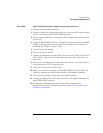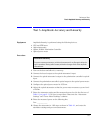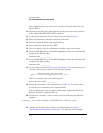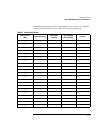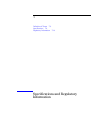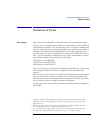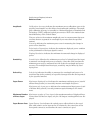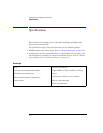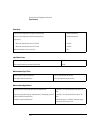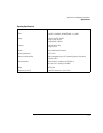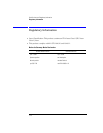
7-3
Specifications and Regulatory Information
Definition of Terms
Definition of Terms
Wavelength
Range
refers to the allowable wavelength range of the optical input signal.
Absolute accuracy
indicates the maximum wavelength error over the allowed
environmental conditions. The wavelength accuracy is based on fundamental
physical constants, which are absolute standards not requiring traceability to
artifacts kept at national standards laboratories. Four He-Ne gas lasers are
used. First, there is an internal 632.991 nm-vacuum (473.6127 THz) reference
laser
1
. To verify absolute wavelength accuracy, three external lasers are mea-
sured during manufacturing with these wavelengths:
730.685 nm, or 410.2896 THz
2
1152.591 nm, or 260.1032 THz
3
1523.488 nm, or 196.7804 THz
3
Differential Accuracy
indicates the maximum wavelength error in measuring
the wavelength difference between two signals that are simultaneously
present.
Minimum Resolvable Separation
indicates the minimum wavelength separa-
tion of two laser lines required to measure each wavelength simultaneously.
Two laser lines closer in wavelength than the minimum resolvable separation
are not resolved and one average wavelength is displayed.
Display Resolution
indicates the minimum incremental change in displayed
wavelength.
1. Obarski, G. E. 1990. “Wavelength Measurement System for Optical Fiber Communications”
NIST Technical Note 1336
(February): 18. Take the average of the two frequencies strad-
dling gain center.
2. Moore, C. E. 1971. “Atomic Energy Levels as Derived from the Analysis of Optical Spectra:
Vol. 1”
NSRDS-NBS 35, Vol. 1 (COM-72-51282)
(December): 77.
3. D. A. Jennings, F. R. Peterson, and K. M. Evenson. 1979. “Frequency measurement of the
260-THz (1.15 micron) He-Ne laser”
Optics Letters Vol. 4, No. 5
(May): 129-130.



